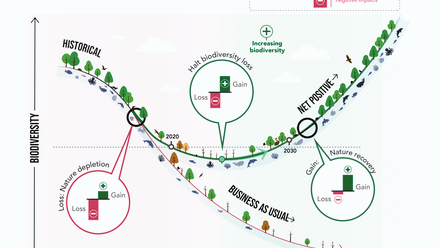Planning overhaul needs to combat climate change, industry tells government
In August, the government published Planning for the Future, a white paper setting out its plans to overhaul the post-war local planning system.
The planning system proposed in the paper will see councils designate land as a 'growth area', 'renewal area' or 'protected area' under a mandatory local plan. It will also introduce mandatory design codes for local areas around England, with a new national body, headed by Create Streets founder Nicholas Boys Smith, overseeing their creation.
An introduction by housing secretary Robert Jenrick said the system would 'build environmentally friendly' homes that will not need to be extensively retrofitted in the future, homes with green spaces and new parks at close hand, where tree-lined streets are the norm'.
But industry bodies such as the Royal Town Planning Institute, as well as academics from Bartlett, have told the government that their proposals do not do enough to address the biggest challenge facing the built environment.
In response to a consultation on the white paper, which ended at the end of last month, the organisations raised concerns about the proposal to streamline environmental assessment, said the Future Homes Standard for carbon emissions did not go far enough and said the document failed to address the need to decarbonise travel.
Planning for the Future proposes a single test for 'sustainable development' to replace environmental impact and mitigation assessments and other tests such as the strategic environmental assessments.
It acknowledges that it is 'vital environmental considerations are considered properly as part of the planning process' but argues that 'current frameworks for doing so [...] can lead to duplication of effort and overly long reports, which inhibit transparency'.
However, the RIBA has told the government it is concerned that the proposal to merge environmental and sustainability tests will ‘oversimplify what is a complex interrelationship of issues, and will not, as hoped, drive up local environmental and ecological standards’.
It said getting the new sustainable development test right is ‘one of the most important tasks the government faces’, adding: ‘The wrong decisions at this stage would be catastrophic.’
The white paper referenced the government’s plans to unveil a Future Homes Standard (FHS) for energy efficiency in new homes, saying: ‘The planning system is only one of the tools that we need to use to mitigate and adapt to climate change.’
According to the white paper, the government will ‘expect’ new homes to produce 75-80 per cent less CO2, compared with current levels, by 2025. It says this means the homes will be able to become ‘fully zero carbon’ over time, as the electricity grid decarbonises.
But many bodies have said this does not go far enough.
‘It is unacceptable that new homes built today must rely on the decarbonisation of the grid to reach net zero,’ the Royal Town Planning Institute said.
‘The implementation date for the FHS [should be] brought forward, with the standard placing a greater emphasis on maximising fabric efficiency and lifecycle emissions, and the ability for local authorities to set higher energy efficiency standards than national policy.’
The government has also been warned that the proposals set out in its planning white paper ignore the opportunity to cut carbon emissions from transport.
In their response, the Bartlett academics pointed out that Planning for the Future is ‘primarily focused’ on buildings, so far as it addresses energy efficiency and net zero carbon.
‘However, planning is about more than buildings and can play an instrumental role in supporting de-carbonisation of transport and other urban systems [such as] waste, food, heat, electricity, water et cetera,’ they said.
‘For example, the principles set up in the white paper should lay the foundations to facilitate a transition to low-carbon transportation by prioritising access to sustainable transportation/public transport; where cars are allowed, provision should be made for transition to low carbon/ electric cars (ie through charging points); incentivising the use of pool cars.’
The point is also made by the RTPI, which noted that the white paper contained ‘no mention of how planning reform will deliver sustainable settlement patterns’.
‘This is especially critical in the context of achieving net zero carbon transport emissions, where radical changes are needed to reduce travel demand, maximise accessibility by sustainable modes of transport, and facilitate the use of alternative fuels,’ it said.
‘The scale of the challenge is considerable: upcoming RTPI research will show that many areas of England will struggle to reduce transport emissions at the scale and pace required, even with ambitious standards for new development,’ it added.
This article originally appeared on Architects' Journal written by Will Ing






